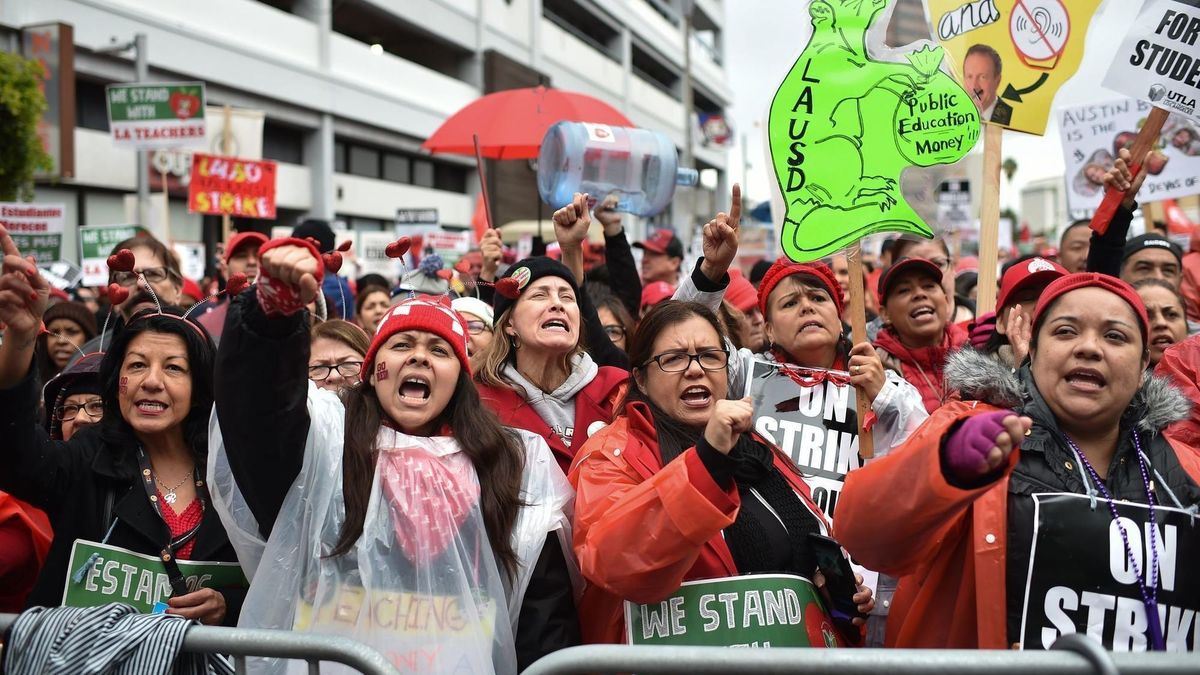While the government shutdown has stolen recent headlines, education-minded students should be aware of a separate crisis in our own backyard: the Los Angeles public school system. Nearly half a million students were left stranded a week ago when over 30,000 unionized teachers walked out on their classrooms.
The United Teachers of Los Angeles strike was launched in a bold strategy to force the LA unified school district to pass a six percent raise across the board for educators across the district, a move declared fiscally irresponsible by the school district and almost certainly leading to insolvency.
Make no mistake. The union strike is both fiscally and morally irresponsible.
The school district has time and time again noted that they are incapable of meeting the demands of UTLA. A report released by an independent agency admits that the district has been teetering on the edge of bankruptcy for years, habitually cutting programs to just stay viable. Declining enrollment coupled with rising pension costs mean that the district’s finances are as shaky as ever. If the reports are to be believed, the district is not unwilling, but rather financially incapable of meeting union demands.
THE EFFECT ON STUDENTS
Los Angeles Unified is one of the largest school districts in the country, serving approximately 485,000 students. Of the half-million, almost 400,000 live below the poverty line–many of which depend on food distribution programs which operate through their schools. The district is also home to 60,000 students with special needs whose parents rely on schools to care for and educate their children while they work. Not only are some children going hungry, but parents are forced to take off work to cover for the fact that their children are being used as pawns in union politics.
As if the immediate ramifications of the strikes were not the only setback to students, the district was already struggling academically before teachers abandoned their classrooms. Last year, only 40 percent of the district’s students met state standards in English, while only 30 percent met standards for Math. According to the National Assessment of Educational Progress, California’s standards already rank among the lowest in the country, while the census reports that 11 percent of California’s population age 25 or over falls short of a ninth grade education–the second worst in the country.
Students who are attending school are corralled into auditoriums and watching movies until the bell rings, their education now on hold until the union leaders give them permission to begin learning again. It goes without saying that the educational repercussions of such strikes will have a prolonged impact on the lives of these students.
A CORRUPTION OF THE SYSTEM
It should be noted that there was once a time that union membership made sense, and still can in the private sector today. However, the incapability of politicians to suspend the public good gives public unions a disproportionate amount of power when it comes to negotiations between public workers and those accountable to the people.
The very fact that a private group can weasel itself between the public good and the state is a perversion of politics itself. The transaction that occurs between the state and the taxpayer assumes that public education is a right of every individual in this country. The ability for a union to wield power over the very existence of this right, while still relieving the taxpayer of their money, is antithetical to the role of the state. Public unions denigrate the role of the individual to a helpless onlooker in their community, putting them in a stranglehold until union demands are met, no matter how outrageous.
Before this summer, teachers were legally mandated to support their public union. However, with the Supreme Court affirming the right to work of public employees just a few months ago, education-minded students should prayerfully assess whether the subsidizing of public unions allows for them to pursue their calling.
It is not a radical notion to believe that private organizations should never become the arbiter of the public good or wielding power over the state itself. Biola students should be ready to stand for responsibility, transparency and integrity, even if it means crossing the picket line.
Jackson Reese is a senior political science major.











